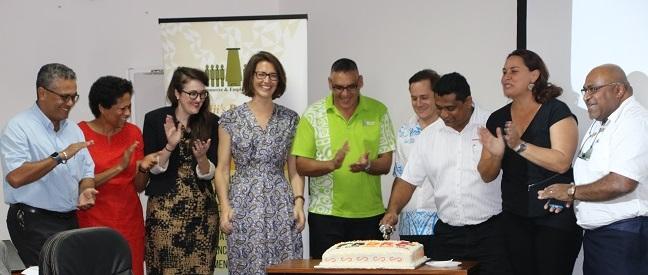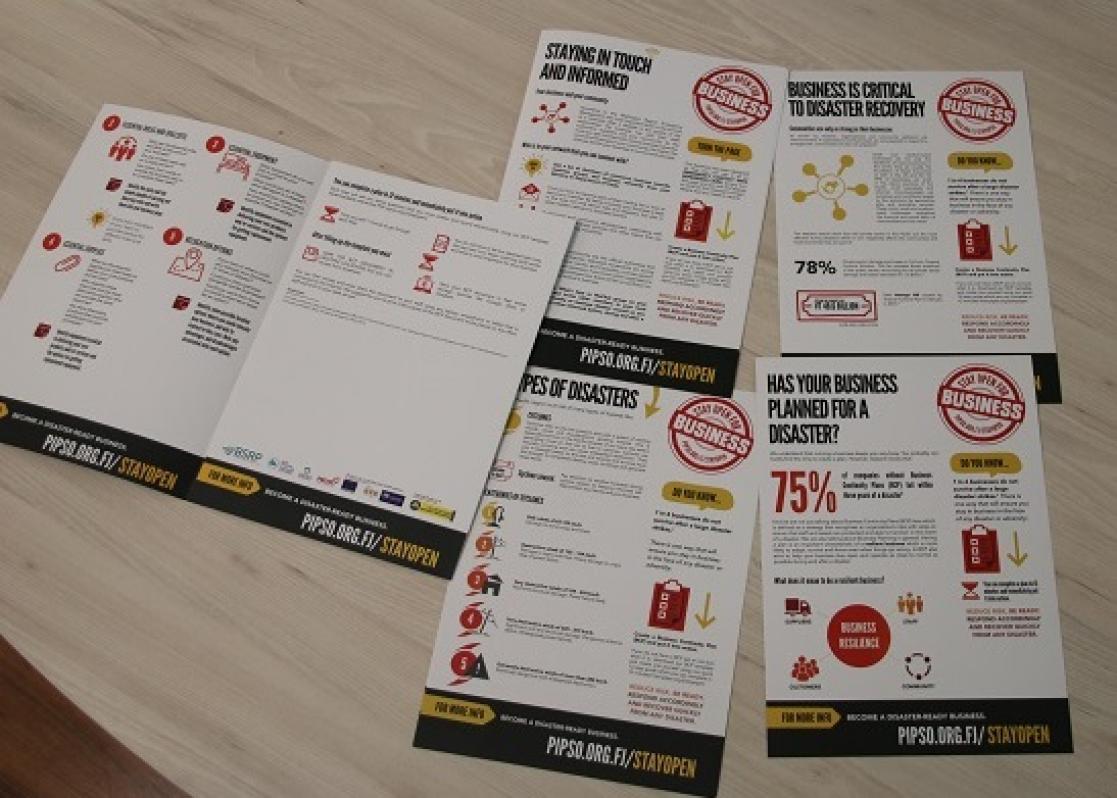Toolkit to Protect Pacific businesses launched

An interactive toolkit outlining the devastating impact disaster causes on the region’s private sector along with ways to reduce it and information on how to create long-term plans for business owners is the focus of the research launched. It contains a simple set of resources that can be used by businesses to support not only their own business resilience but that of their suppliers to ensure the region is more prepared for future disasters with regional businesses already providing positive feedback from the toolkit. The toolkit has been developed in the framework of the "Building Safety and Resilience in the Pacific (BSRP)" Project.
Pacific Islands Private Sector Organisation’s (PIPSO) CEO, Ms. Mereia Volavola said this toolkit shows not only the need for businesses to plan for risks but highlights the real impact disasters cause to the private sector across the region. She said it is important that we build a risk management culture for businesses across the Pacific.
“We know when the private sector is resilient and prepared for disaster so too are our communities. The private sector is critical in supporting community preparedness so this toolkit helps businesses easily create their own disaster plans whilst ensuring when disaster strikes their ability to survive is already planned for,” she said.
Fiji Business Disaster and Resilience Council (FBDRC) Chair, Ms. Morika Hunter is already planning the roll out of training for the toolkit and said this tool provides action for businesses to genuinely help them protect their bottom line.

“Research shows that one in every four businesses typically won’t survive disasters if they aren’t fully operational within one month of the disaster striking. This is a terrifying statistic when you think most of our businesses in the region are small to medium in size. Supporting the sector to increase its resilience is critical not only for the bottom line of businesses but for our communities that work for the private sector,” she said.
The toolkit was developed by the Pacific Community (SPC) with support from a wide ranging working group in partnership with private sector organisations, FBDRC and PIPSO. SPC’s Deputy Director-General, Dr. Audrey Aumua said it is critical for SPC to take the lead on work like this to ensure disaster resilience targets both the private and public sectors alike and supports the integration of this work across the entire region.
“The cost of disaster on the private sector is not always front and centre but this sector employs our communities and, in many ways, supports our communities when disaster strikes so ensuring the private sector is supported to become more resilient means more people stay in employment after such an event helping more local businesses to survive,” she said.
Head of Infrastructure and Natural resources at the Delegation of the European Union for the Pacific, Mr Jesús Laviǹa recognises the crucial role of private sector as a driver of inclusive growth and job creation, ideally placed to deliver on the promise of sustainable and socially inclusive economic development.
"Supporting the sector to ensure the resilience of physical assets and planning responses could offer possibilities for value creation. Resilient practices and innovative solutions can be developed and become an important driver of future business and growth for the SME sector. Unlocking this potential for value creation can additionally foster economic growth in all the Pacific Region.”
The toolkit is available online at www.pipso.org.fj/stayopen. The toolkit will be implemented by the private sector team over the coming months.
The targeted work was led by the Pacific Community’s (SPC) Building Safety and Resilience in the Pacific Project, in partnership with the Fiji Business Disaster and Resilience Council (FBDRC), the Pacific Islands Private Sector Organisation (PIPSO), the Pacific United Nations Office for Disaster Risk Reduction (UNISDR) with support from the Wellington Region Emergency Management Council, and funded by the European Union and ACP Group of States.
